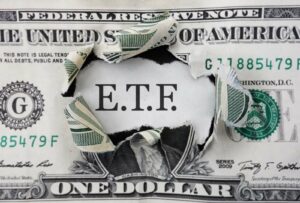At Fine Print Media, we track a number of data streams to understand latent trends in political and investment behavior among members of government. Much of this work would not be possible, however, without landmark transparency legislation, the Ethics in Government Act of 1978. This legislation, enacted in response to the Nixon Watergate scandal, put into law monumental safeguards against misconduct among members and employees of the government. This act requires that senior government officials regularly disclosure details regarding their personal finances and investments.
While the reports submitted under the auspices of the Ethics in Government Act provide a wealth of information, they are not easy to access. Full reports are only given out on an individual basis to those seeking them out in person in Washington D.C. Additionally, these reports do not capture all relevant financial behavior among members of government. They provide wide ranging estimates regarding financial activities and lack details on unearned income and financial gains and losses due to property investments. Loopholes such as these make for an insufficient check on the behavior of members of government.
By supplementing and merging such financial disclosure records with additionally data sources, we are able to create a more-detailed picture of investment behavior among members of government than otherwise exists. We look forward to sharing these new insights with you.





